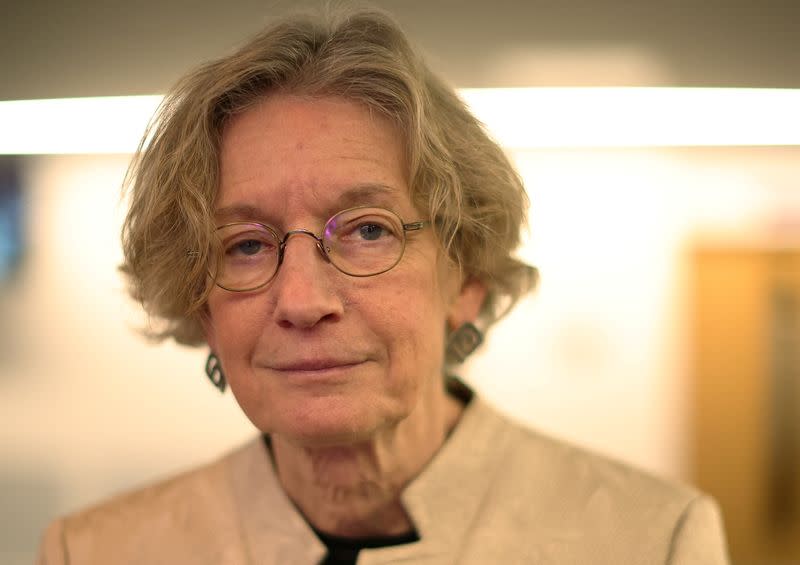BoE's Mann says rich consumers are making it harder to curb inflation

LONDON (Reuters) - The spending habits of wealthy Britons who are immune to the pressure of higher interest rates is making it harder to curb inflation, Bank of England (BoE) policymaker Catherine Mann said on Wednesday, according to the Financial Times.
Mann told a Financial Times event that those on higher incomes who still had money for discretionary purchases, even with higher mortgage costs, were spending "disproportionately" on travel, eating out and entertainment.
That meant services inflation was not falling fast enough to bring inflation back to the BoE's 2% target even though energy prices were easing and goods prices were largely flat.
"Consumers discipline what firms can price - they can't pay for it ... or they choose not to," the FT quoted Mann as saying. "There is not a lot of consumer discipline on a large enough fraction of categories of services to represent active deceleration in services price inflation."
She said this was part of the challenge for the BoE's Monetary Policy Committee (MPC) as it seeks to return inflation sustainably to the target using the "single tool" of the benchmark interest rate, the FT reported.
The BoE forecasts inflation on a year-over-year basis will fall from 4% last month to its 2% target in the second quarter of this year, but then will rise towards 3% at the end of 2024 as the disinflationary impact of lower natural gas prices fades.
Mann was one of two members of the BoE's MPC to vote this month for a further increase in interest rates due to ongoing inflation risks.
(Reporting by Kylie MacLellan; Editing by Paul Simao)

 Yahoo Finance
Yahoo Finance 